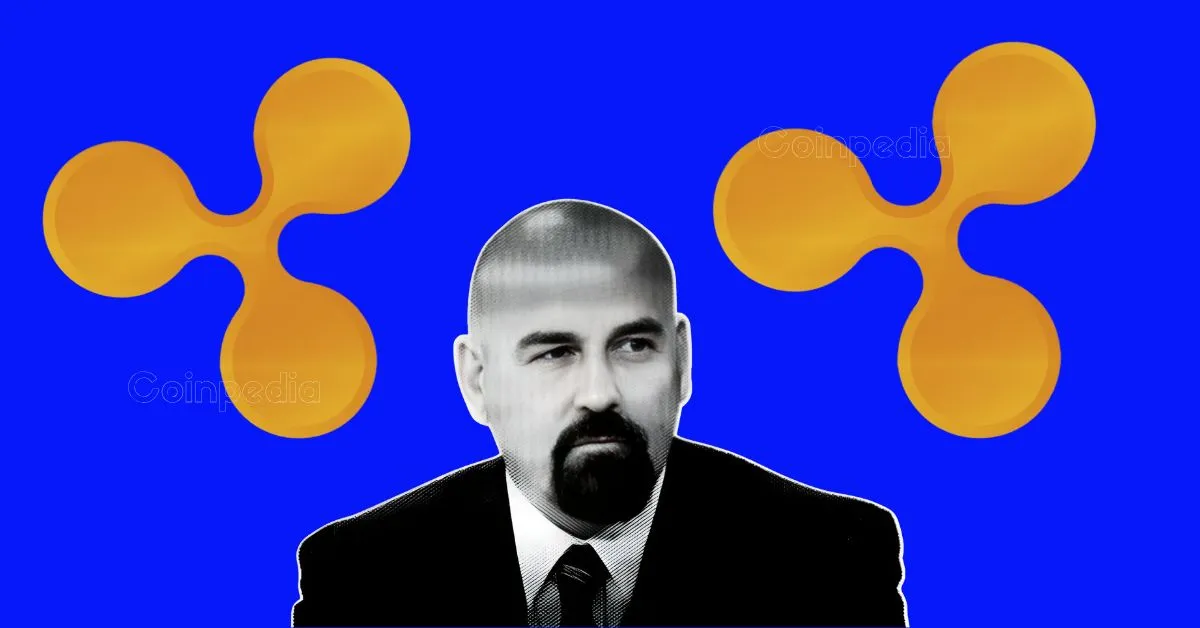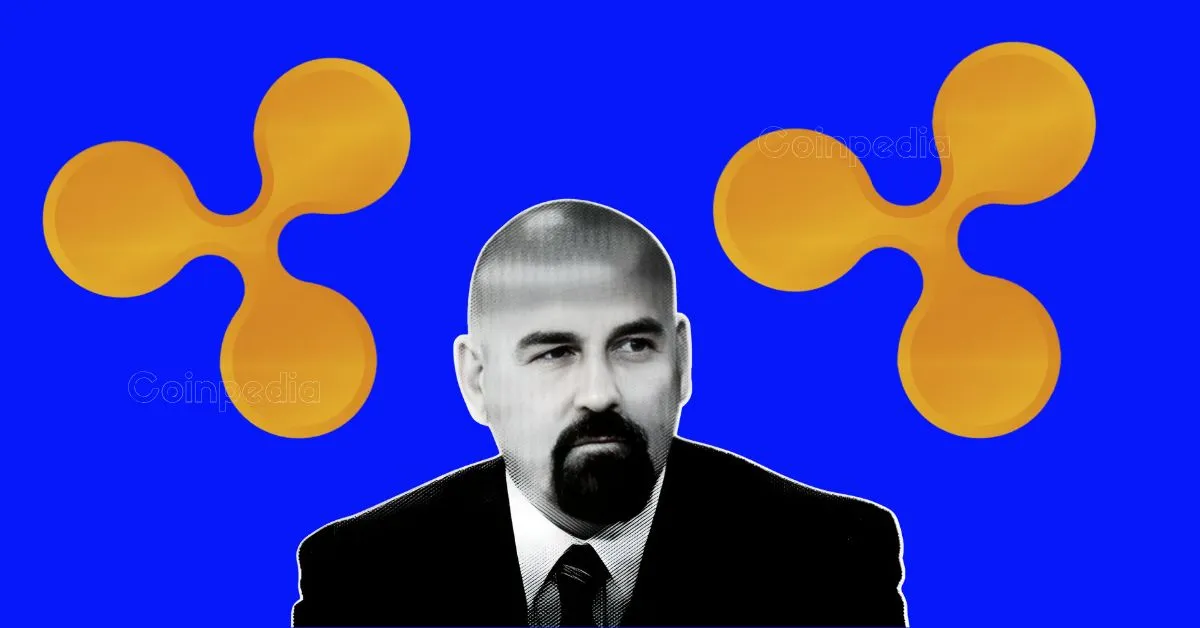The financial world is on the cusp of a seismic transformation, driven by a generational shift in attitudes toward money and technology. At the heart of this change is a growing disillusionment with traditional banking systems, particularly among younger demographics. Gen Z and Millennials, who have come of age in an era of financial instability and technological disruption, are increasingly turning to cryptocurrency platforms as alternatives to conventional financial institutions. This trend is not merely a passing fad but a fundamental reimagining of how money is managed, transferred, and invested.
Central to this narrative is John Deaton, a prominent figure in the cryptocurrency space who has boldly predicted that companies like Ripple and Coinbase are poised to eclipse traditional banks in influence and market share. Deaton’s vision is supported by compelling data: a staggering 89% of Gen Z and Millennials are reportedly willing to abandon traditional banks in favor of crypto platforms. This mass migration represents a profound challenge to the established financial order and a massive opportunity for innovative crypto firms to reshape the industry.
Tokenization-as-a-Service: Ripple’s Expanding Domain
Ripple, a company best known for its cross-border payment solutions, is strategically expanding its role in the financial ecosystem. Beyond its core offerings, Ripple is now venturing into the world of tokenization, a process that converts real-world assets into digital tokens on a blockchain. According to John Deaton, Ripple is positioning itself to offer “tokenization-as-a-service,” a concept that could revolutionize how assets are traded and managed. Tokenization enables the digitization of assets such as real estate, commodities, intellectual property, and even traditional financial instruments, making them more liquid and accessible.
By providing tokenization services, Ripple aims to become a key player in the future of finance, enabling institutions to unlock new efficiencies and liquidity through blockchain technology. This expansion aligns with Ripple’s broader vision of bridging the gap between traditional finance and the crypto world, ultimately unlocking a market valued at trillions of dollars.
Uphold’s Acquisition: A Ripple Effect Across the Industry
The potential acquisition of Uphold, a cryptocurrency platform with substantial XRP holdings, has sparked significant speculation within the crypto community. John Deaton has highlighted that Uphold’s significant XRP reserves—nearly 70% of its total holdings, valued at approximately $4.54 billion—would play a crucial role in determining its acquisition price. Potential suitors, including Coinbase, Kraken, Gemini, Robinhood, Binance, and even Ripple itself, are being closely watched as the deal unfolds.
Such an acquisition would be more than a simple corporate transaction; it would represent a strategic consolidation of power within the crypto industry. The acquisition of Uphold by a major player could accelerate the mainstream adoption of XRP and solidify its position as a leading digital asset. This move would also further entrench crypto platforms as formidable competitors to traditional financial institutions.
The Banking Question: Ripple’s Strategic Choice
While companies like Coinbase, Circle, BitGo, and Paxos are actively pursuing bank licenses, Ripple has taken a different approach. John Deaton has expressed surprise at Ripple’s decision not to apply for a banking license, noting that it seemed like “a matter of time.” This strategic divergence raises questions about Ripple’s long-term vision and its approach to regulatory compliance.
Instead of becoming a bank itself, Ripple appears to be focusing on providing technology and infrastructure to enable other institutions to offer crypto-related services. This approach allows Ripple to avoid the complexities and regulatory burdens associated with operating a bank while still playing a vital role in the crypto ecosystem. By empowering other institutions to integrate crypto into their offerings, Ripple can maintain its influence without the operational challenges of being a licensed bank.
Ripple’s $1.25 Billion Deal: A $16 Trillion Vision
Ripple’s recent $1.25 billion acquisition of Hidden Road, a technology provider for institutional credit markets, offers a glimpse into its grand strategy. John Deaton believes that Ripple is secretly preparing to become a major player for institutions seeking to enter the blockchain market. This acquisition suggests that Ripple is building a comprehensive suite of services to cater to the needs of institutional investors, who are increasingly interested in digital assets but require sophisticated tools and infrastructure to participate effectively.
This move aligns with Ripple’s broader vision of bridging the gap between traditional finance and the crypto world, ultimately unlocking a potential $16 trillion market. By providing institutional-grade solutions, Ripple is positioning itself as a critical enabler of the next wave of financial innovation, one that seamlessly integrates blockchain technology into the global economy.
The SEC Saga: A Defining Moment for XRP
The long-standing legal battle between Ripple and the U.S. Securities and Exchange Commission (SEC) has been a defining moment for the company and the entire crypto industry. John Deaton, who has been a vocal advocate for XRP holders throughout the case, has consistently argued that XRP is not a security. The SEC’s decision to drop its appeal against Ripple was hailed as a victory for the company and a validation of Deaton’s arguments.
This outcome has provided much-needed clarity regarding XRP’s regulatory status, paving the way for its wider adoption and integration into the financial system. The resolution of this legal battle has removed a significant obstacle to XRP’s growth and has reinforced the broader crypto community’s confidence in the asset’s legitimacy.
Circle’s Acquisition: A Potential Bank Play
Rumors of Ripple’s interest in acquiring Circle, the issuer of the USDC stablecoin, have further fueled speculation about the company’s ambitions in the banking sector. John Deaton believes that acquiring Circle could push Ripple toward becoming a bank, albeit indirectly. By controlling a major stablecoin, Ripple could gain a significant foothold in the payments and lending space, potentially competing directly with traditional banks.
While Ripple has not officially confirmed its interest in acquiring Circle, the possibility highlights its strategic focus on expanding its reach and influence within the financial industry. The acquisition of Circle would not only bolster Ripple’s stablecoin offerings but also position it as a key player in the rapidly evolving digital asset landscape.
John Deaton: From Marine to Crypto Advocate
John Deaton’s journey from a former Marine to a leading crypto advocate is a testament to the transformative power of digital assets. Deaton’s interest in crypto began in 2016, and he has since become a passionate advocate for XRP and the broader crypto community. His legal expertise and unwavering commitment have made him a prominent voice in the industry, particularly in the fight against regulatory overreach.
Deaton’s background as a Marine has instilled in him a sense of duty and a willingness to fight for what he believes in, qualities that have served him well in his role as a champion for crypto innovation. His advocacy has not only benefited XRP holders but has also contributed to the broader crypto community’s efforts to navigate the complex regulatory landscape.
The IPO Horizon: Ripple’s $100 Billion Potential
Speculation about a potential Ripple IPO has been circulating for some time, and John Deaton has reignited the discussion with his prediction that the company could achieve a $100 billion valuation. Deaton argues that the timing is now a critical factor, suggesting that Ripple is positioning itself for a public offering in the near future. An IPO of this magnitude would be a landmark event for the crypto industry, further validating the potential of digital assets and attracting mainstream investors.
While Ripple has stated that it is not planning to go public in 2025, the possibility remains a significant topic of discussion within the crypto community. The potential IPO would not only provide Ripple with access to capital but also signal to the broader market that crypto companies are here to stay and are poised for long-term growth.
The Warren Challenge: A Pro-Crypto Voice in the Senate
John Deaton’s decision to run for Senate against Elizabeth Warren has injected a new level of excitement and optimism into the crypto community. Warren has been a vocal critic of cryptocurrencies, advocating for stricter regulations and raising concerns about their potential risks. Deaton’s campaign represents a direct challenge to Warren’s anti-crypto stance and an opportunity to bring a pro-crypto voice to the Senate.
With backing from Ripple CEO Brad Garlinghouse and a $1 million donation from Ripple, Deaton’s campaign has gained significant momentum, signaling a growing political awareness and engagement within the crypto industry. The outcome of this race could have far-reaching implications for the regulatory environment surrounding cryptocurrencies and the broader digital asset ecosystem.
A New Era of Finance
The rise of crypto platforms like Ripple and Coinbase signals a fundamental shift in the financial landscape. Driven by the demands of a digitally native generation and fueled by technological innovation, these companies are poised to challenge the dominance of traditional banks and usher in a new era of finance. John Deaton’s vision of a future where crypto platforms offer a full suite of financial services, from lending to tokenization, is becoming increasingly plausible.
As the crypto industry continues to mature and regulatory clarity emerges, the transition from traditional finance to a decentralized, blockchain-based system will only accelerate. The future of finance is decentralized, transparent, and accessible to all, and companies like Ripple and Coinbase are leading the charge.
Conclusion: The Dawn of Crypto Banking
John Deaton’s predictions, while bold, are rooted in the undeniable trends reshaping the financial world. Gen Z’s embrace of crypto, Ripple’s strategic expansion into tokenization and institutional services, and the growing political influence of the crypto community all point toward a future where digital assets play a central role in the global economy. The transition may not be immediate or without its challenges, but the momentum is undeniable.
The era of crypto banking is dawning, and companies like Ripple and Coinbase are leading the charge. The future of finance is decentralized, transparent, and accessible to all, and the financial landscape as we know it is on the brink of a profound transformation. As the crypto industry continues to evolve, the lines between traditional finance and digital assets will blur, ultimately giving rise to a new financial paradigm that is more inclusive, efficient, and innovative than ever before.












